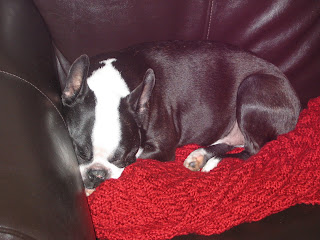
There is an odd and inherent contradiction to blogging. It creates a public and infinitely open forum from which to communicate, and yet the words shared are limited via the medium used and must always be funneled down to an individual perspective. It's hard to walk the fine line sometimes between personal and purposeful. Ultimately, one's intention as a writer remains helpless in meeting the perspective of the reader... and so the process ends up feeling a bit like writing a love letter to someone you know from afar - without expectation of response.
In looking back on yesterday's post, I have been thinking a lot about silence (specifically, the Buddhist take on silence), and also about suffering and compassion... and how that all blends together in the context of blogging through the process of my spiritual exploration.
One of my favorite Buddhist proverbs is:
Do not speak, unless it improves on silence.
I love the recognition of silence as something valuable, as well as the importance of thinking before speaking. Sometimes our words are like our thoughts: random, ego-driven, tangential, and disconnected from mindful awareness. Silence may afford further reflection; it may allow someone else an opportunity to provide wisdom, guidance, or strength; and it may lead to a more silent internal state... one truly centered in the now and from which we may speak and act with authenticity and humility.
How, then, does silence come to bear upon blogging? It's a rather talky activity - potentially self-important and typically one-sided in its execution. My guess: Most bloggers negotiate and utilize large periods of silence before setting out to communicate their thoughts. Posts are purposeful, the structure and tone of the blog decided in advance and carefully maintained by the author. I would also hazard a guess most bloggers are doing so because they value interpersonal connection and believe there is merit to sharing their thoughts and personal experiences while reading those of others in an effort to remember and expand upon the universality and interconnection of the human experience.
One of the things I struggle with lately, in seeking to better understand Buddhism, is in knowing how to balance an awareness of the suffering of others with an openness and honesty to my suffering - in whatever form it may take. This can be difficult because we are relativistic thinkers... and so our tendency is to compare self with other - be it for good or ill.
Halfway through my post yesterday, I started to worry my focus on boredom might seem callous in the context of the earthquake in Haiti, the health struggles of friends and their families, the financial struggle of thousands striving to make basic necessities (food, shelter, clothing) a consistent and stable reality, the disenfranchisement and discrimination faced by individuals whose rights are unjustly and consistently denied...
It is a luxury to be able to focus on an emotion such as boredom. I see it as an opportunity to practice gratitude and consider my blessings to be able to label my suffering with such a small and trivial word. And I chose to blog about it - and to keep it even when worry struck halfway through - because I hoped my words might bring a sense of connection or comfort to someone else standing under the same raincloud.
There is another proverb I found today that seems fitting:
Every path has its puddle.
Sometimes the puddle exists in the wake of a tsunami and threatens to overwhelm us, and sometimes it is merely the mirage of water we seem to be standing in - a self-propelled hallucination because we are determined to see water where there is none.
I like to think there is merit in exploring both.
May you listen, pause, and breathe today. May you answer all forms of suffering (even the imagined ones) with compassion and courage.










